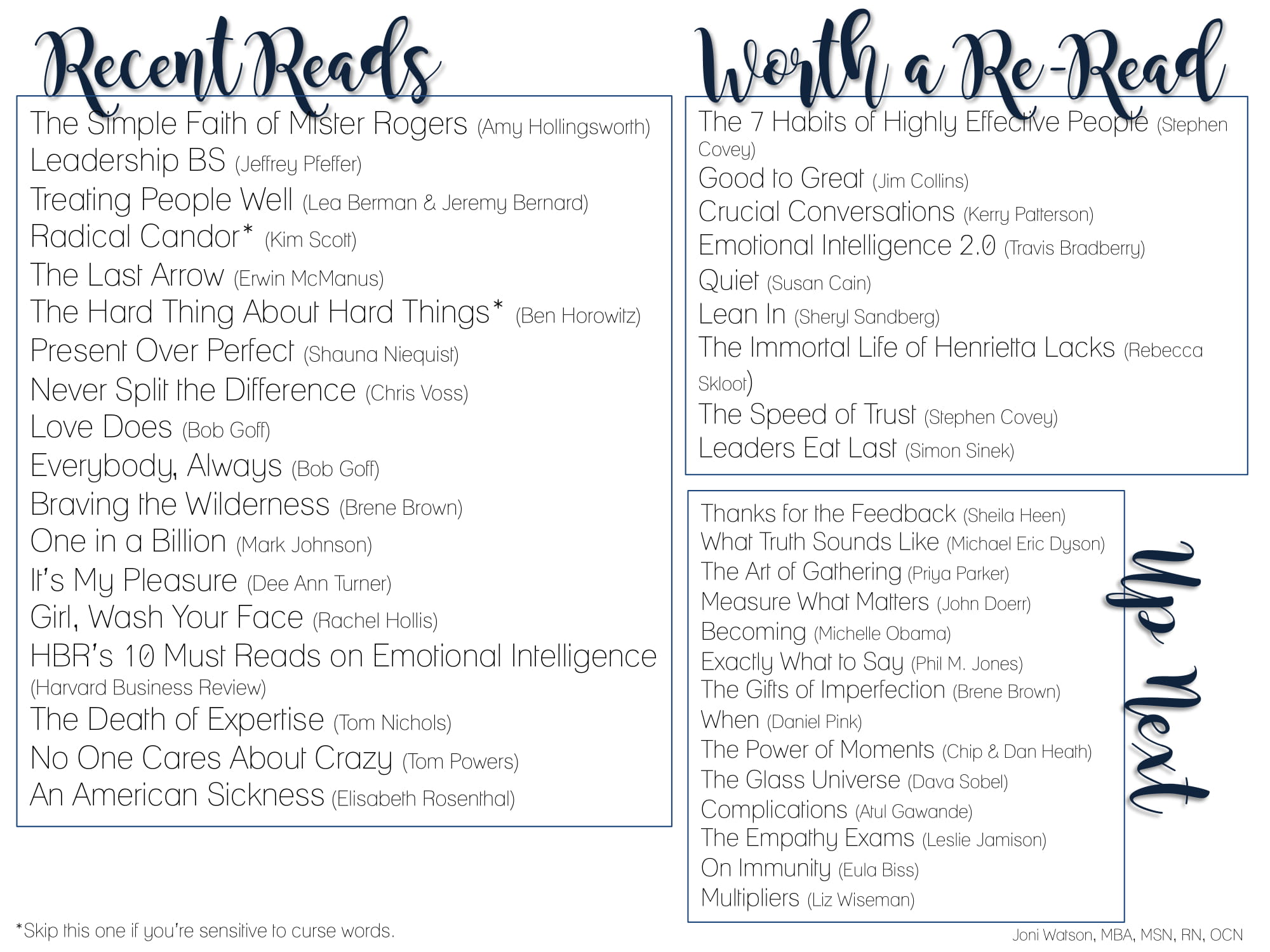- Nursing Education (http://dev-voice.ons.org/topic/nursing-education)
- Nurse Empowerment (http://dev-voice.ons.org/topic/nurse-empowerment)
- Nursing Professional Development (http://dev-voice.ons.org/topic/nursing-professional-development)
- Nurse Well-Being (http://dev-voice.ons.org/topic/nurse-well-being)
You Are What You Read
Business leader Charlie “Tremendous” Jones once said, “You will be the same person in five years as you are today except for the people you meet and the books you read.”
Reading is essential to growth—both professionally and personally. Unfortunately, reading for enjoyment rapidly declines after age eight (http://www.scholastic.com/readingreport/the-state-of-kids-and-reading.htm), and one in four Americans say they haven’t read a book in the past 12 months (http://www.pewinternet.org/2016/09/01/book-reading-2016/).
Even growing up in a home with plenty of books, parents who read every night, and exceptional teachers, reading was always something I had to do, not something I wanted to do. Years of schooling left me with a desire to do anything but read; I had to reprogram my brain and develop the habit of reading until I eventually enjoyed it.
And, I legitimately enjoy reading now. Nonfiction books are my pleasure, and I try to read three to four books per month that range from leadership and management to modern poetry to Christian living to biographies and historical memoirs. If fiction is your thing, read fiction. The important thing is to just read.
If you’re not sure how to start or keep the momentum going, here are a few tips I use to keep my reading flame burning:
- Set a goal. Who cares that it’s the last half of the year? Set a goal to read a certain number of books. Maybe the goal is one. It’s okay. Set a goal, develop your plan, and get to reading.
- Keep a to-read list. Always have another book waiting in the wings to read. If you start one book as soon as you finish one, it’s much easier to keep your reading on pace.
- Try an audio book. Even though I enjoy the feeling of paper books in my hands, I am able to “read” many more books when I listen to them. During my commute each day, while I am getting ready for work, while I’m getting a pedicure, while I am walking in the evenings—you name it. Depending on the length of your commute to and from work, you can “read” one book per week if you choose your books wisely. Trust me; my one-way commute is 15 minutes (yeah, it’s awesome); if I can do it in that timeframe, you can do it in yours.
- Dust off your library card. I promise there are books all around you, and cost should never be a barrier to reading. Libraries are a wealth of resources, and most libraries now not only have paper books but also e-reader and audiobook libraries that you can access any hour of the day.
- Start with what you love. Don’t force yourself to read history if you aren’t interested in it. There’s a genre for everyone, so start with what you love, and then branch out into what you need to read. You’ll eventually enjoy it.
- You have permission to quit any book that isn’t cutting it. Don’t waste your time trying to trudge through a book just to finish it. I bought an audiobook last week and had to turn it off before reaching chapter two. Maybe I’ll give it a second chance in a few months, but for now, I’m moving on to another book I’ve been waiting to read.
Reading can help you develop and hone leadership skills, work to refresh your attitude and provide stress relief, and even reframe your perspective to approach problems with a new point of view. Not all reading needs to be tedious, scholarly, or dull. It’s important to interject a wide variety of books into your repertoire.
If you aren’t reading as much as you’d like to today, try a few of these tips to get started. You’ll be recommending books to your friends and colleagues in no time. Happy reading!

